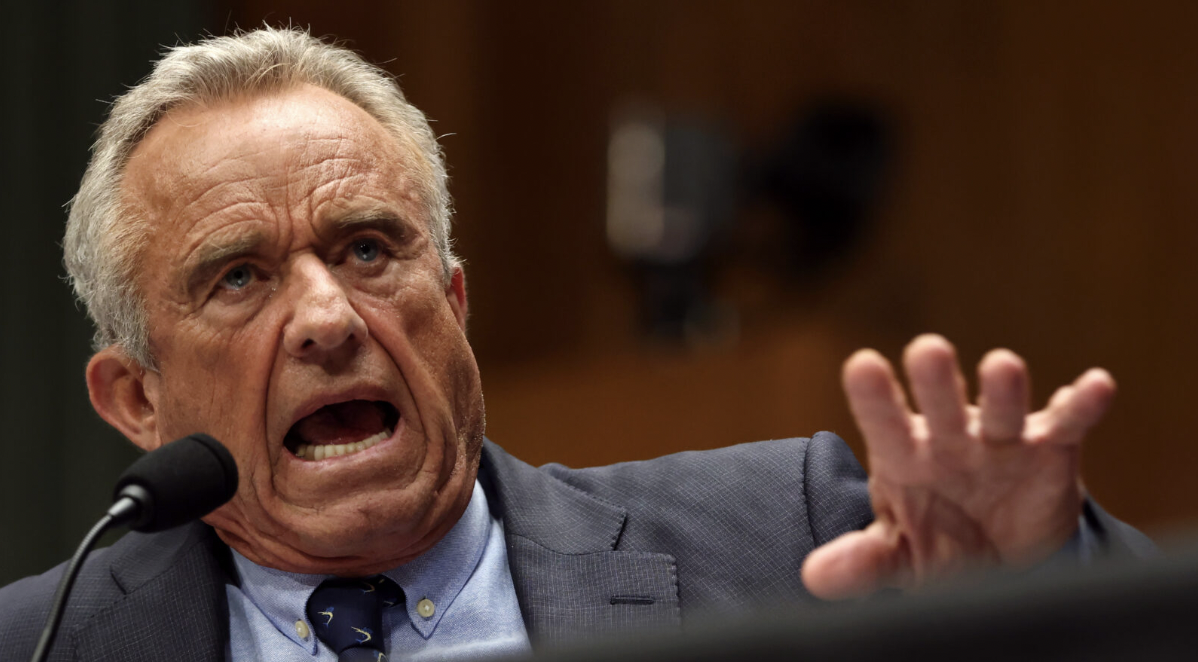Photo via Samuel Corum/Getty Images
***
Dietary Guidelines for Americans (DGA) will release updated regulations and nutritional advice this fall. The organization was first created in 1980 by the U.S. Department of Agriculture (USDA) and the U.S. Department of Health and Human Services (HHS) and aims to coordinate with these departments to educate Americans on how to make healthy dietary decisions. While the DGA has been a respected corner of health education for nearly 50 years, new efforts by the Trump administration threaten its outreach.
HHS Secretary Robert F. Kennedy (RFK) Jr. has been anything but silent about his views on America’s public health issues, particularly alarmingly high rates of obesity, heart disease and diabetes. RFK Jr. has been vocal about America’s declining health, specifically condemning the consumption of ultra-processed foods. More controversially, he has promoted his vaccine skepticism through the HHS and perpetuated racist pseudoscience about African Americans’ immune systems.
Despite RFK’s supposed commitment to “Make America Healthy Again,” he has worked with President Donald J. Trump to reduce the HHS workforce significantly. According to the Trust for America’s Health (TFAH) 2025 public health funding report, over 100 health programs for diabetes, heart disease, obesity and HIV/AIDS are at risk for elimination in 2026. RFK’s rhetoric for supporting these cuts –one of mistrust, individualism and skepticism towards medical institutions– is predicated to impact the DGA’s 2026 dietary guidelines, threatening the integrity of future health policy and nutrition education.
In line with RFK’s rationale for supporting the HHS’s downsizing, he has heavily critiqued the DGA’s past dietary guidelines, citing their recommendations as lacking scientific evidence. When asked to comment on the upcoming 2025-2030 guidelines, RFK stated, “We are going to make sure the dietary guidelines will reflect the public interest and serve public health, rather than special interests.” During a news conference hosted by Agricultural Secretary Brooke Rollins regarding the Supplemental Nutrition Assistance Program (SNAP) cuts, RFK also confirmed that the new DGA report will only be four to six pages, unlike the 142-page length of the 2020-2025 edition. This dramatic cut goes beyond efficiency; it will lack significant information and depth vital to the Trump administration’s future health policy decisions.
The DGA dietary report typically relies on input from several qualified nutritionists and undergoes rigorous peer review from field experts. RFK’s plans for this report will undermine this vital accuracy and impact health policy from 2026 onward. Part of the dietary report’s function is the provision of guidance for health and nutrition-focused legislation and programs. For example, the SNAP program uses the nutritional guidelines to inform its Thrifty Food Plan (TFP) to regulate the maximum benefits a SNAP user can receive. The dietary report also helps set the nutrition standards for public school lunches, specifically how much children eat and what they are given. Without proper dietary guidelines, government agencies will struggle to meet the needs of individuals dependent on these regulations.
Despite RFK’s ambitious goals, shortening the upcoming dietary guidelines and reducing funding for other HHS programs will likely negatively impact Americans. About 4.7 million people are dependent on SNAP benefits and nearly 30 million children receive public school lunch, raising concerns about where the future of their nutrition lies under HHS’s new leadership.
On the surface, HHS’s goal to “Make America Healthy Again” seems straightforward. However, when looking deeper at the impacts of the new administration on America’s health institutions, it becomes clear that the solution to America’s health crisis isn’t RFK’s bootstraps individualism. Instead, the systemic barriers to a healthier America must be addressed before pointing the finger at whose decision-making is to blame. When nearly 19 million Americans live in food deserts with little to no access to healthy whole foods, cutting benefit programs created to counteract this insecurity is counterproductive. This issue becomes even more challenging when considering how redlining, housing discrimination and historical racial inequalities contribute to the problem. Health in America isn’t solely a conversation about who’s making the right choices, but rather what social, historical and economic factors inform these choices. The sooner RFK Jr. and HHS acknowledge this reality, the sooner progress will be made.
***
This article was edited by Georgie Javier.
